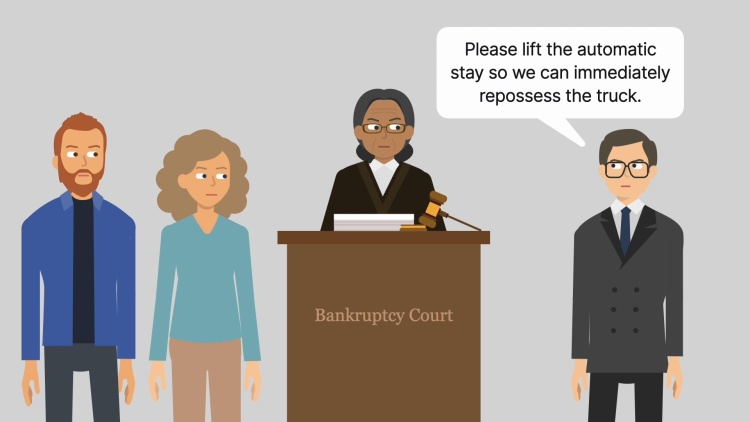Associates Commercial Corporation v. Rash
United States Supreme Court
520 U.S. 953 (1997)

- Written by Denise McGimsey, JD
Facts
In 1989, Elray Rash (debtor) purchased a tractor-trailer for $73,700 for use in his business. He made a down payment to the seller and agreed to pay off the purchase price over 60 months. The seller assigned the loan and lien to Associates Commercial Corporation (ACC) (creditor). In 1992, Rash submitted a bankruptcy petition and repayment plan under Chapter Thirteen of the Bankruptcy Code, at which point he owed $41,171 to ACC. Under the proposed plan, Rash sought to retain the truck and to pay ACC, over the life of the plan, the truck’s present value, which Rash alleged was $28,500. ACC objected. It argued that the truck’s value equaled the outstanding $41,171 debt and sought permission to immediately repossess the truck. At a hearing on the truck’s value, Rash argued that the value should be determined based on the amount ACC would receive if it were to foreclose and sell the truck. ACC argued that the truck’s value should be based on the amount Rash would have to pay to replace the truck. The bankruptcy court agreed with Rash and approved a plan that called for repayment of the truck’s foreclosure value over time. The district court and the Fifth Circuit affirmed. ACC petitioned the United States Supreme Court for review.
Rule of Law
Issue
Holding and Reasoning (Ginsburg, J.)
Dissent (Stevens, J.)
What to do next…
Here's why 907,000 law students have relied on our case briefs:
- Written by law professors and practitioners, not other law students. 47,100 briefs, keyed to 996 casebooks. Top-notch customer support.
- The right amount of information, includes the facts, issues, rule of law, holding and reasoning, and any concurrences and dissents.
- Access in your classes, works on your mobile and tablet. Massive library of related video lessons and high quality multiple-choice questions.
- Easy to use, uniform format for every case brief. Written in plain English, not in legalese. Our briefs summarize and simplify; they don’t just repeat the court’s language.





